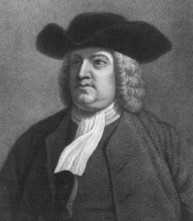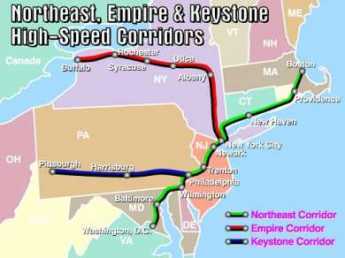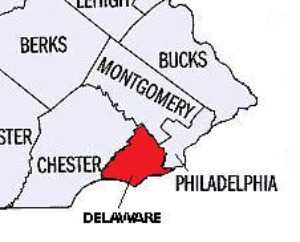Related Topics
Philadelphia Politics
Originally, politics had to do with the Proprietors, then the immigrants, then the King of England, then the establishment of the nation. Philadelphia first perfected the big-city political machine, which centers on bulk payments from utilities to the boss politician rather than small graft payments to individual office holders. More efficient that way.
Historical Preservation
The 20% federal tax credit for historic preservation is said to have been the special pet of Senator Lugar of Indiana. Much of the recent transformation of Philadelphia's downtown is attributed to this incentive.
Indigents
With a long history of welcoming and assisting the poor, Philadelphia has always risked swamping the lifeboat by attracting more of them than it can handle.
Right Angle Club 2008
A report, to the year 2008 shareholders of the Right Angle Club of Philadelphia, by the outgoing president, Neale Bringhurst...
Chester: To the Dark Tower

|
| William Penn |
Chester is the original word for Castle in old English, and accounts for towns called Manchester, Lancaster, Dorchester in the Midlands of England. Although much is made of his Welsh ancestry,William Penn grew up and lived in the neighborhood of Manchester. When he first landed in his new colony, he named the place Chester before deciding to move upriver to be above the mudflats and snags at the abrupt turn of the river where we now have an international airport. On several occasions, this protection from pirates and invaders made it possible to remain rich and prosperous without abandoning Quaker pacifist principles. As a further bit of history, the second public reading of the American constitution took place in the courthouse at Chester. During the industrial revolution, Chester became a mighty industrial town somewhat in advance of Philadelphia. The industry has, sadly, abandoned Chester.
Chester repeats the age-old tradition that slums are created when towns are abandoned, making cheap housing available. There's even a particular Chester twist to this principle: the old Sun Shipyards have been turned into a casino. Now, that will create poverty if anything will.

|
| Amtrak's Northeast Corridor |
Peter Barrow is a local real estate man who is determined to lead a revival of the old Chester, and certainly makes a good case for its future. Although much of the city was abandoned, the infrastructure remains. The roads, sewers, water supply, railroads, port facilities may be old but they are essentially intact, making revival much cheaper. Chester is still served by the R2 train from Philadelphia to Wilmington, and is on the main line of Amtak's Northeast Corridor. It's now near the airport, and near the electronics industry developing in Chester County along Route 202. Those things are economic drivers, and they are social ones, too. The old Chester urban Democratic machine and the rural Delaware County Republican machine can no longer afford to remain ossified in perpetual denunciation, in the face of new residents with new outlooks on things. So, there's agitation for reforms and both votes and discontent to propel it forward.
Given a magic wand, the one thing Mr. Barrow would change would be education. The public schools are undisciplined and unsafe, and mobilized by the teachers' unions to resist charter schools no matter what. Things have even gone to the point where Widener University is thinking about starting a charter high school, and the more graduates of charter schools the more momentum builds up for still more charter schools. Hidden in this struggle are two less defensible issues: parochial schools and vocational schools, pro, and con. The struggle over church schools goes back to the founding of our country in the sixteenth century and firmly resists any objectivity about whether parochial schools are better schools, or not. For them, that's not the point. The other tradition at play here is the historic opposition to vocational schools by trade unions. This one might be a little easier to work with since resistance to the development of more plumbers and carpenters was understandable enough during the industrial days of the city, but really is no longer relevant in an era when we now must import illegal immigrants to serve our needs in the mechanical trades.
Chester seems to have a chance to get its act together. Success or failure of this important the struggle could well depend on one or the other of the entrenched political machines, urban and suburban, seeing an opportunity -- and grabbing it.
WWW.Philadelphia-Reflections.com/blog/1322.htm
Originally published: Monday, October 22, 2007; most-recently modified: Wednesday, May 15, 2019
| Posted by: Carol Tollins | Apr 7, 2014 5:23 PM |
| Posted by: Shelley Ashfield | Feb 22, 2014 6:15 PM |
